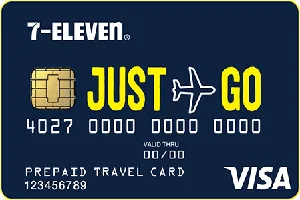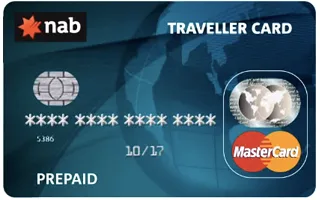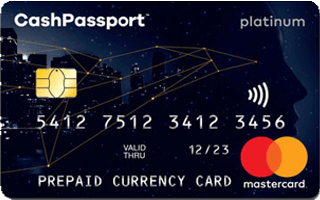CASE STUDY: Do your homework first
Jeremy stood shoulder to shoulder with locals and tourists, trying to keep his footing as the metro made its way towards the Colosseum. As more and more people packed onto the train, Jeremy lost his girlfriend to the glacial movement of the crowd pulling her towards the back. When he felt a brush against his rear, he was a little surprised but thought nothing of it and put it down to one of those packed-train moments. A moment was all the pickpocket needed to steal Jeremy's wallet.
Jeremy got on the phone to his card protection service, Secure Sentinel. A call to this service is supposed to be the one-stop shop for cancelling cards, but Jeremy ended up having to call each bank separately, which led to a number of frustrating hours spent on the phone, instead of hours negotiating Italy's famous tourist traps. Luckily for Jeremy, he had done his homework.
Jeremy is a publisher at finder.com.au, so he knew to get a prepaid card before he left since they come with a backup. To his girlfriend's delight, the back-up card saved their trip and they were back on the streets of Rome the next day; albeit with an eye on their pockets. It almost wasn't such a sure thing. Like any smart traveller should, Jeremy had done his research before he left the country and he knew to spread his money between a couple of cards and his girlfriend.
Be like Jeremy and do your homework before you leave.





I am going to the Uk in 2019. Confusions is supreme. I see there is information about conversation currency fees, however on individual travel card sites they claim 0 fees. If I have a facility with my current domestic bank that charges no fees to transfer money to another facility and I use a travel card that states they have 0 fees for upload and currency conversation fee, am I correct in believing that there will be no cost to me to upload AUD to GBP. I am traveling for about 3 months and with a budget of around AUD 20,000. What cards should I consider compared to using my domestic Credit and Debit cards. I have tried using your search engine for best card for country but it is not uploading.
Hi Kerry,
Thanks for getting in touch.
Sorry to hear about your confusion as to which card you would bring to the UK and apologies as well if you’re having a hard time uploading our page. Nevertheless, to help you narrow down your options, you can refer to our guide on travel money to the UK. From the page, you’d be able to compare your options for pre-paid, debit, and credit cards, and even foreign cash. Just click on the tabs to see the list. Once you have chosen a particular travel card, you may then click on the “Go to site” button and you will be redirected to the provider’s website where you can proceed with your application or get in touch with their representatives for further assistance.
With regard to the cost, usually, there’s no cost in loading AUD to the prepaid travel cards. If the currency is supported by the card, say GBP, it’s also free.
I hope this has helped.
Cheers,
May
Hello, just wanted to let you know that unless I’m mistaken, the Qantas Cash card has differing information on your website. On one page it says that there is a 1% reload fee and on another that there is 0%. That said, thanks for offering unbiased easy to understand information, much obliged…
Hi Brenda,
Thank you for your inquiry.
There are actually two ways to reload your Qantas Cash Card. The first option is via bank transfer or BPAY which has 0% fee and the second option through Direct Debit that charges 1% of the total amount. As a sample, this is how Direct Debit works:
If you wish to load or reload 200 AUD onto your card using Debit Card Load, you will be charged a fee of 1% of the load amount being AUD 200 x 1% = AUD 2. This means you will be required to pay AUD 202 to complete your Debit Card Load transaction.
Please also note that you may be charged other fees by third parties in relation to the Debit Card reloading transaction like the fees charged by your financial institution.
I hope this information helps.
Cheers,
May
I am traveling to South Africa and wanted to take a prepaid debit card but do not know who to contact for something like that. I talked to Travelex but they do not deal in South African currency. Any suggestions?
Hi Jean,
Thank you for contacting Finder.
Our Travel money guide to South Africa will provide you some options that may suit your needs. On the page, is a comparison table for a list of travel debit cards and prepaid travel money cards. You can use the table to help narrow down your options. Once you have selected one, you may proceed by clicking the green “Go to Site” button.
Before applying, please ensure that you read through the relevant Product Disclosure Statements/Terms and Conditions when comparing your options before making a decision on whether it is right for you. You can also contact the provider if you have specific questions.
I hope this helps.
Cheers,
Danielle
Can i take english currency to greece or should i take euros
Hello Brenda.
Thank you for reaching out to Finder.
Yes, you may take English currency to Greece and have it changed to Euros there, but you may also take Euros. As to what you should bring is all up to you. Our Travel Money Guide to Greece might help you assess what would be best to bring. Please also note that exchange rates vary on a daily basis, also depending on the travel money provider or exchange bureau.
Alternatively, you also have several other options to choose from aside from taking cash. You may use your debit or credit card, a travel card, or traveller’s cheque. Again, choosing what would best suit you and what you would be comfortable with is all up to you.
Hope this helped.
Cheers,
Gru
Which travel card is best for me – for 3 weeks in England in September
Hi Dorothy,
Thanks for your enquiry.
The best card for you would be the one that best meets your needs, preference, and budget.
To help you compare your options, please check our travel money options for UK trips. There’s a table on that page to help you compare your options. Aside from that, the same page comes with a guide on how you can best spend money in the UK.
I hope this helps.
Cheers,
Danielle